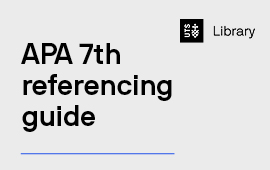Benefits of Open Access
Open Access publishing has many benefits for communities, institutions, and individuals. Publishing your work openly can:
- increase your visibility and the impact of your work
- unlock opportunities for collaboration
- increase citation rates
- ensure compliance with grant and funding rules
- allow researchers in developing countries to see your work
- allow your work to influence policy
- ensure taxpayers get value for (research) money and can access your findings
Open Access explained
Open Access describes scholarly and scientific research that is openly and freely accessible to anyone regardless of their ability to pay. It sits in opposition to published research kept behind subscription paywalls that is accessible only when an institution or individual pays for access. Open Access research with the Creatives Commons Attribution (CC BY) license means the researcher has retained copyright ownership of their own work (and not handed it over to the publisher) and they have given any person or machine the right to read, analyse, share or reuse the research in any way, as long as, the original researcher is acknowledged as the author of the original work.
Open Access can be achieved in the following three main ways:
Green Open Access
Research that is published in either closed or open journals and other publishing platforms can be made Open Access via an institutional (e.g., OPUS) or subject based repository (e.g., arXiv). If a published version of research sits behind a paywall, an Author Accepted Manuscript (AAM) - the peer reviewed and edited but unpublished version of the article - can usually be made available with publisher permission in a repository for public access.
Gold Open Access
Research that is freely and publicly available globally upon publication. Financial models that support this form of publishing include Article Processing Charges (APC) where an author(s) or their institution or funder pays an APC for the work to be peer-reviewed, edited, typeset, and published. Some publishers are financially sponsored to provide free to publish and free to read and reuse Open Access journals, among them, university presses including UTS ePRESS.
Hybrid Access
In Hybrid Access, authors are charged Article Processing Charges (APC) in addition to institutions often being charged a subscription to the same journal content.
Additional resources
- Open Access Publishing Guide: primer on publishing in Open Access journals
- Understanding Open Access: When, Why and How to Make Your Work Openly Accessible: detailed guide
- Journal Options Flowchart: simple flowchart on choosing open access journals
- SPARC Author Addendum: rights retention instrument
- Plan S: initiative for Open Access publishing that includes an international funders
- Plan S Journal Checker Tool: check if a journal is compliant with Plan S requirements
- Open Access FAQs: what do you need to do at UTS, and how?
- Open licensing: information on choosing and applying a Creative Commons licence to your work
Open Access policies
ARC Open Access Policy
The ARC Open Access policy states that any research output arising from ARC Funded Research must be made openly accessible within a 12-month period from the date of publication. The policy also requires that the metadata of all ARC funded research outputs be made available to the public in an institutional repository within 3 months of the publication date.
NHMRC Open Access Policy
The NHMRC Open Access Policy requires that all peer-reviewed journal articles and peer-reviewed conference papers arising from NHMRC funded research must be:
- made immediately open access, without any embargo period (e.g. publisher website or institutional repository)
- published with a Creative Commons Attribution 'CC BY' licence
- the metadata for the peer-reviewed publication must be made openly accessible via an institutional repository within 3 months of the publication date.
Find advice on how to comply with these requirements.
UTS Open Access Policy
The UTS Open Access Policy requires UTS researchers to deposit their research publications to OPUS, the UTS institutional repository, to facilitate public access to the University’s research. The UTS Research Open Access Procedure provides guidance on the submission of research outputs to OPUS and the Research Data Portal. While OPUS aims to provide full-text access to all UTS research outputs, some items may be unavailable due to publisher embargo periods or other copyright restrictions.
Read & Publish agreements
The Council of Australian University Librarians (CAUL) have negotiated agreements with several publishers that allow researchers and higher degree research students from participating institutions to publish their articles Open Access without paying the Article Processing Charge (APC). These agreements are called Read & Publish Agreements (also known as ‘Transformative Agreements’).
- UTS has agreements with the publishers listed below.
- Select titles are included in the agreement, they do not include all journals.
- Some publishers have a cap on the number of articles that receive an APC waiver (e.g. AIP and Oxford University Press). With these publishers there must be credits available in the national APC pool before publishing can occur.
- Credits are available at the start of the calendar year and usage can be checked below.
- A full list of eligible journals for UTS authors can be accessed through CAUL once University of Technology Sydney is selected from the dropdown menu.
Several agreements have been renegotiated for 2026, which may introduce new terms and conditions. Further information will be released progressively.
For the most current information, please refer to the individual publisher pages below.
| Publisher | Relevant resources |
| Association for Computing Machinery (ACM) |
|
American Institute of Physics (AIP)
Ringgold ID: 1994 |
|
| American Psychological Association (APA) |
|
| American Society for Mechanical Engineers (ASME) |
|
| Cambridge University Press |
|
| The Company of Biologists |
|
CSIRO Ringgold ID: 1994 |
|
| Elsevier |
|
| Emerald Publishing |
|
| Taylor and Francis Expert Medicine (Future Science) |
|
| IOP |
|
| IWA (International Water Association) |
|
| Microbiology Society |
|
| Oxford University Press |
|
| Sage |
|
| Springer Nature |
|
| Taylor & Francis |
|
| Wiley |
|
Review frequently asked questions about the agreements.
Getting help
- Request a consultation with a librarian to discuss your publishing options.







